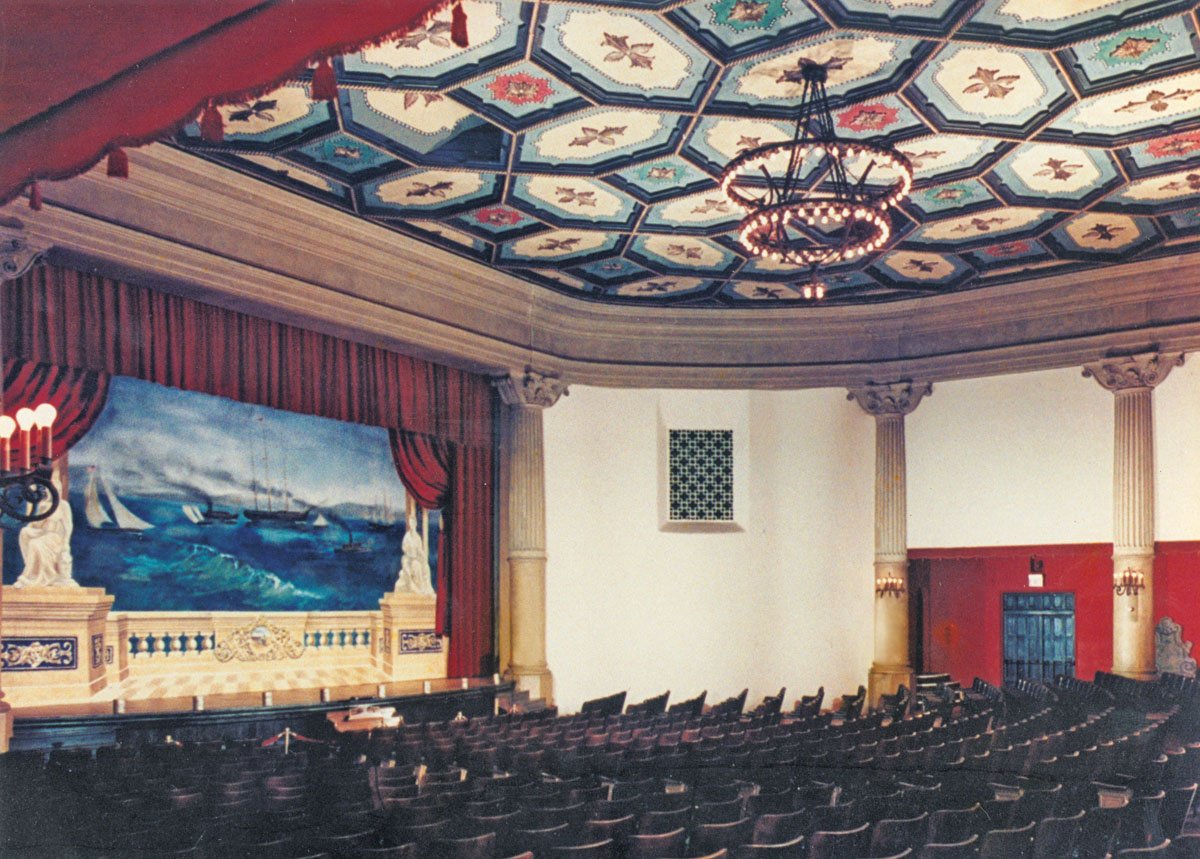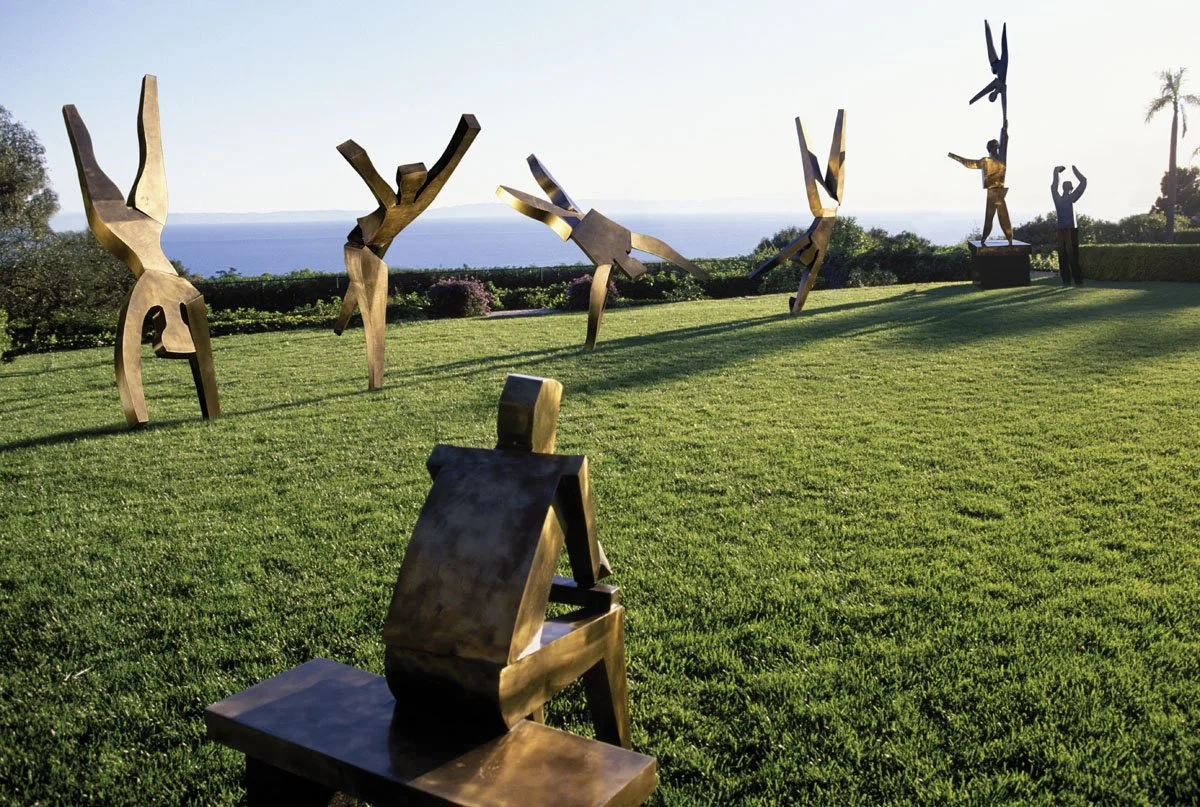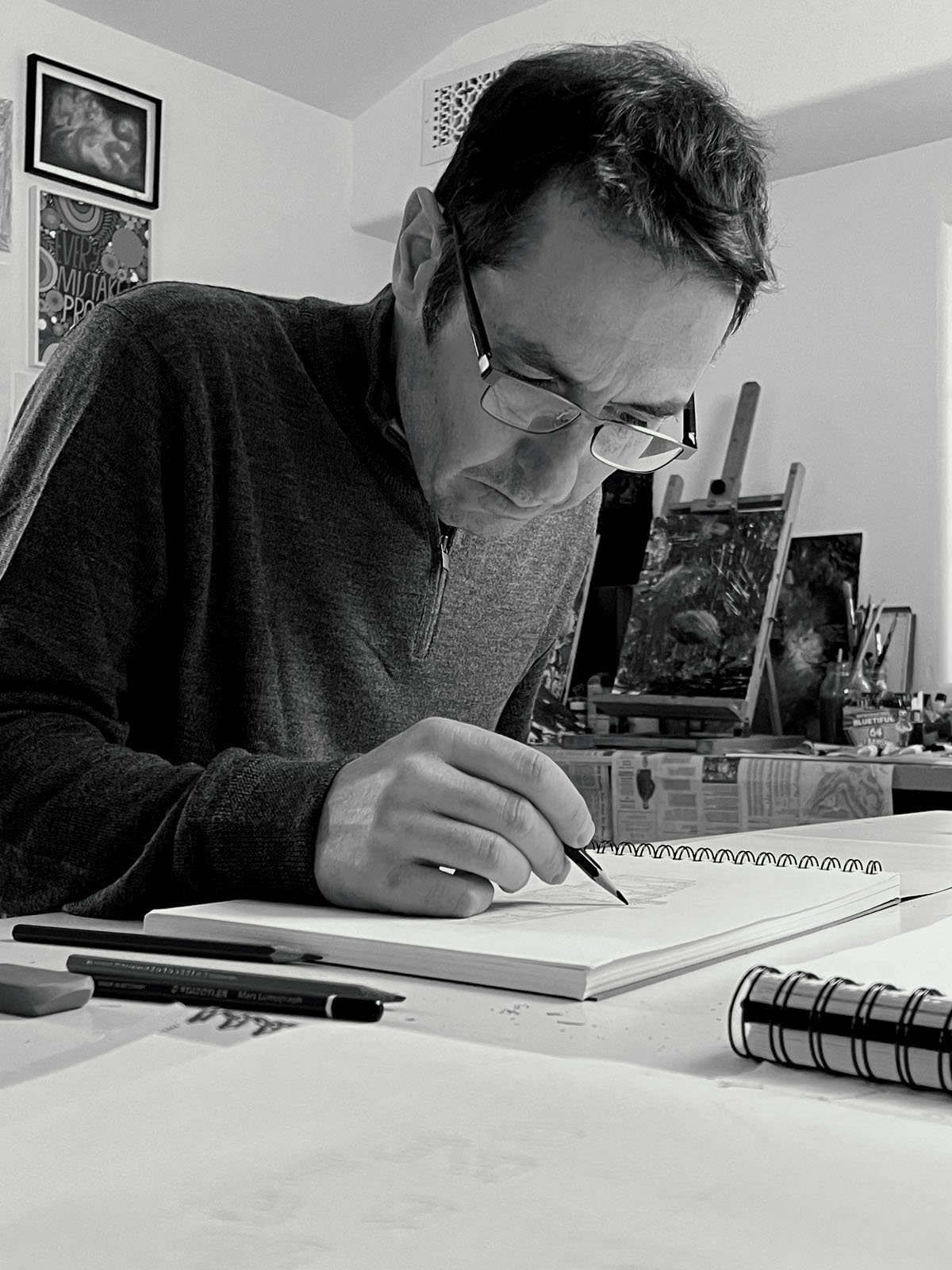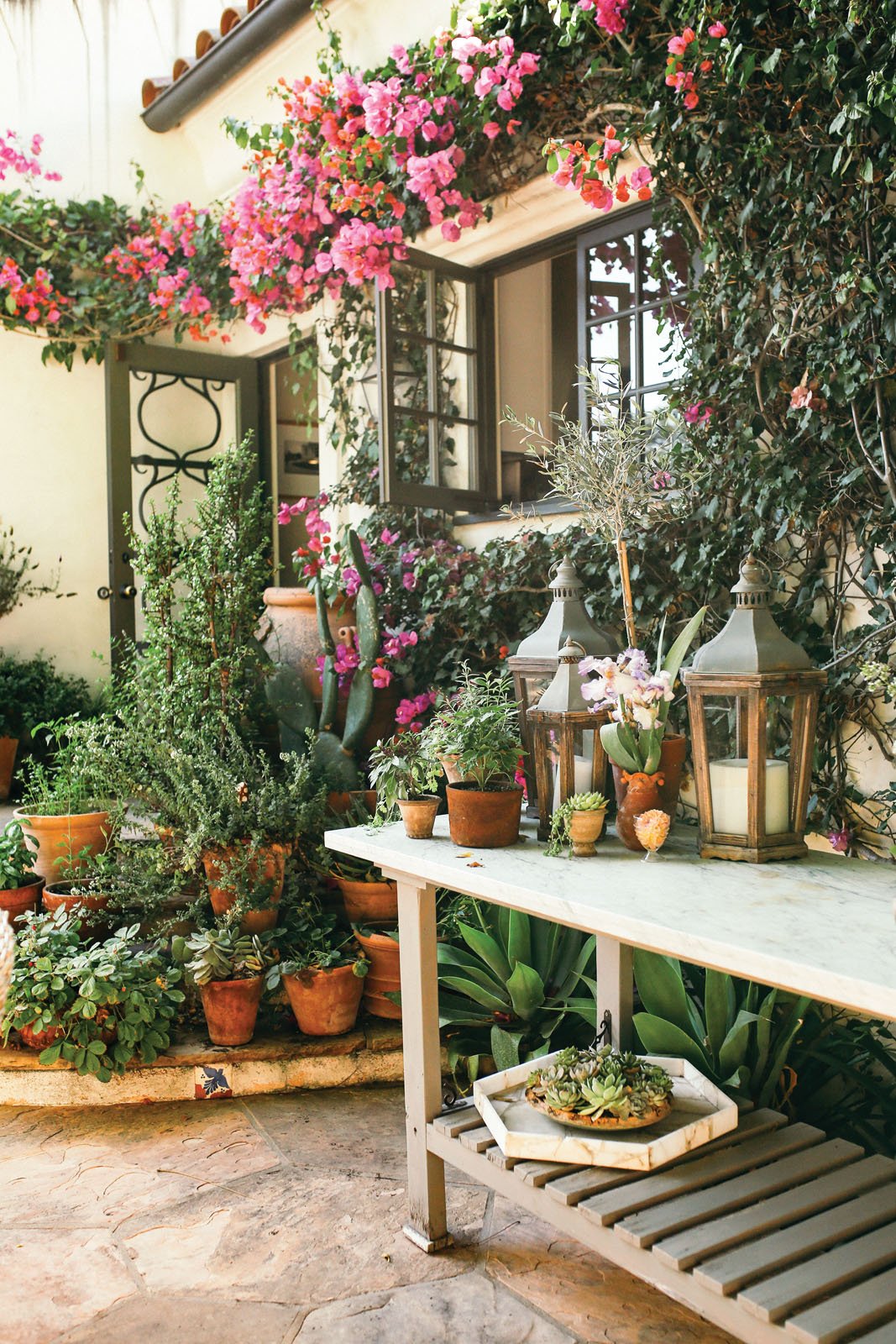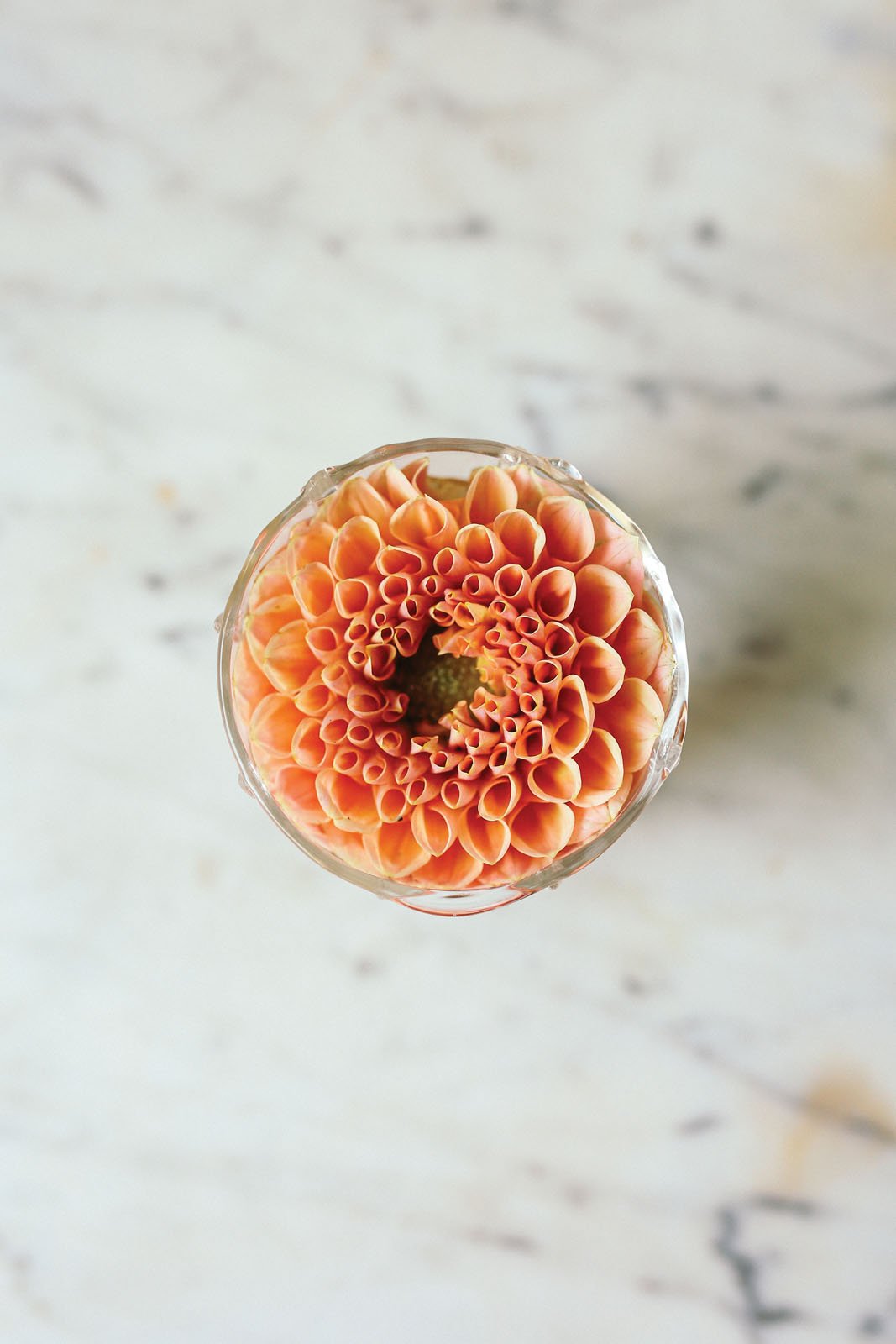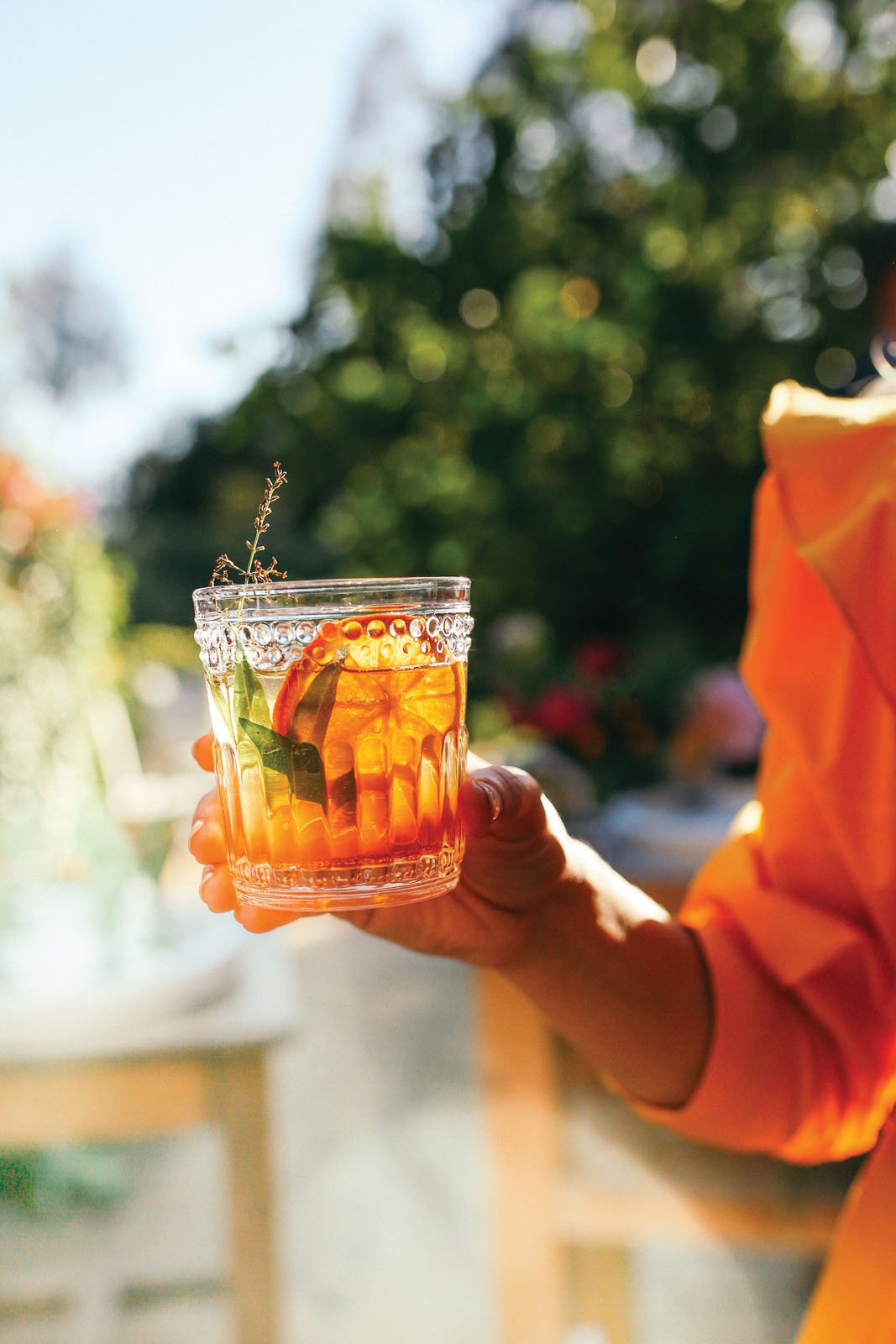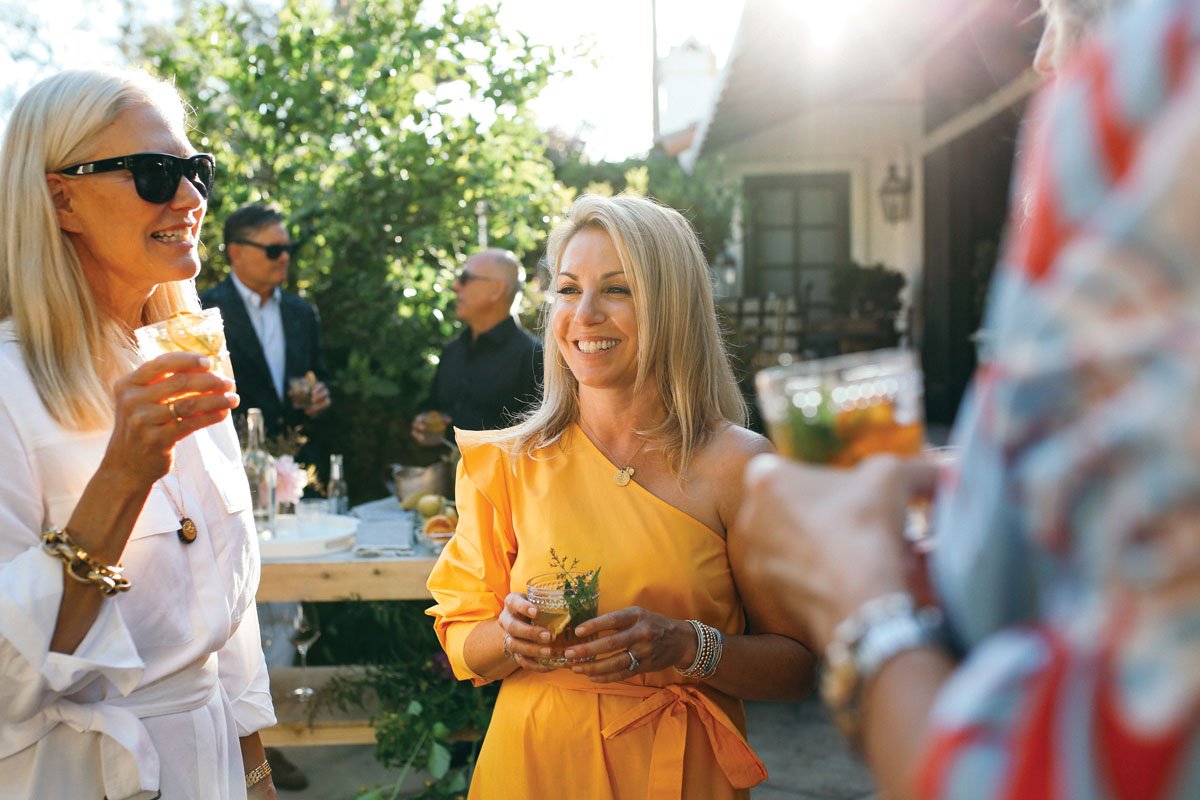Culinary Goods
Much like the town of Ojai, Jennie Prebor takes a slow-growth approach to her business.
Written by Jessica Ritz | Photography by Stephanie Helguera
Much like the town of Ojai, Jennie Prebor takes a slow-growth approach to her business. After operating blanchesylvia women’s clothing and accessories shop in the historic downtown arcade since 2016, she’s recently opened culinary store BLANCHESYLVIA KITCHEN in nearby Meiners Oaks. “It emerged in the same way,” she says. “It’s about just finding stuff that I love.” And just as she vouches for merchandise in the dress shop, “there’s nothing in here that I wouldn’t use in my kitchen,” Prebor adds. Named for one of her grandmothers, Blanche, and her mother, Sylvia, the new outpost is a longtime fulfillment of certain obsessions and touchstones, starting with Prebor’s family kitchen in Pennsylvania. In contrast, interior details like polished concrete floors and unvarnished wood shelving stem from a visit to minimalist movement pioneer Donald Judd’s famed pantry in Marfa, Texas, two decades ago. As for the eclectic collected wares in her shop, she hopes “people will want to buy these things as much as I love them,” whether it’s a vintage Greek olive oil jug, Oaxacan pottery, or even a jar of Grey Poupon mustard. Blanchesylvia Kitchen also stocks “local friends,” such as Bonito Coffee Roaster, Beato Chocolates, and Caroline’s Marmalades and Jams.
Here, the boundaries between home, life, and community overlap, as evidenced by the olive oil bottled from fruit in the grove owned by Prebor and her husband, architect Fred Fisher. “It’s very personal,” she says of the project. 443 W. El Roblar, Meiners Oaks, @blanchesylviaojai
See the story in our digital edition
Stage Presence
For a century and a half, a wealth of talent has graced the stage of the Lobero Theatre, which is celebrating its 150th anniversary this month.
Written by Joan Tapper
For a century and a half, a wealth of talent has graced the stage of the Lobero Theatre, which is celebrating its 150th anniversary this month. Founded as an opera house in 1873 by Jose Lobero, the venue is the oldest continually operating theater in California and the fourth oldest in the country. The earliest years included appearances by the Tennessee Jubilee Singers; boxer John L. Sullivan, who tried a new career as an actor; and Susan B. Anthony.
In 1924 architect Lutah Maria Riggs, in partnership with George Washington Smith, redesigned the theater in the Spanish Colonial style that would come to epitomize Santa Barbara’s look after an earthquake the following year flattened much of downtown. The theater was undamaged, however, and in the following decades has welcomed classical musicians like Sergei Rachmaninoff and Yehudi Menuhin, actors like Humphrey Bogart and Lucille Ball, jazz greats like Charles Lloyd and Dizzy Gillespie, and folk/rock performers like Tom Waits, Neil Young, and the late David Crosby.
The Lobero interior has retained its graceful elegance with fluted columns that ring the auditorium, a circular chandelier, and an elaborate painted ceiling. And, of course, its support of the arts, which has only gotten stronger over 150 years.
Architect Lutah Maria Riggs put her stamp on the redesign of the Lobero Theatre in 1924, with a Spanish Colonial exterior and graceful interior details. This archival photo shows a couple of the surrounding columns, the painted ceiling modules, and the chandelier, along with stage decor.
See the story in our digital edition
A Taste of the World
When Santa Barbara–based Nati Smith sat down to write Mish and the Recipe for Adventure…
Written by Joan Tapper | Photography by Sara Prince
When Santa Barbara–based Nati Smith sat down to write Mish and the Recipe for Adventure (Wise Ink Creative Publishing, $23), a heart-warming children’s book with illustrations by Guillermo Alonso, she had several goals in mind. As a Jerusalem native, Smith aimed to introduce children to international culture through fun recipes from around the world, while also bringing mindfulness to the kitchen. Her story focuses on a young rabbit, Mish, who enters a cooking competition against other talented chefs. As Mish advances to the finals, in part thanks to spiritual practices that help her keep calm, she wows the judges with a comforting childhood favorite made with a secret ingredient—love.
Smith says, “Mish is a journey of friendship, food, culture, believing in yourself, and overcoming obstacles with affirmation and love.” That message has resonated with children and adults alike. “Many parents have shared pictures of their kids reading the book along with loving comments about their experience with Mish,” she adds. “All of these incredible reactions have filled my heart with love and smiles and given me much inspiration and encouragement for the upcoming chapters in the Mish series.”
Nati Smith’s Shakshuka
About 6 medium tomatoes
1 tablespoon avocado oil
1 yellow bell pepper, seeds removed and chopped roughly
1 red bell pepper, seeds removed and chopped roughly
1 bunch green onions, chopped (green parts only)
3 to 4 artichoke hearts, thickly sliced
2 handfuls cherry tomatoes, halved
½ to 1 teaspoon dried oregano
½ to 1 teaspoon dried basil
1 teaspoon paprika
½ teaspoon Himalayan pink salt
¼ teaspoon freshly ground black pepper
2 handfuls fresh spinach leaves
5 to 6 eggs
Za’atar
Tahini
Maldon smoked sea salt (optional)
Sumac
Olive oil
Fresh cilantro, chopped, for garnish
A tablespoon of love
Bring a pot of water to a boil. Meanwhile, use a sharp knife to score each medium tomato on the bottom (opposite the stem end), making an X. Keep any juice that is released. Drop the tomatoes into the boiling water and cook for 1 minute. Transfer to a bowl of ice water. With a knife or a spoon, peel off the skin and cut the tomatoes into rough cubes or slices.
Place the avocado oil in a large pan over medium heat. Add the chopped bell peppers and sauté for a few minutes, until soft. Add the green onions and artichoke hearts and continue to cook. Add the cherry tomatoes and boiled tomatoes (with the juices they released while cutting). Stir and add the oregano, basil, paprika, Himalayan salt, and black pepper. Stir well. Cook for about 10 minutes, stirring occasionally. If you need more liquid, add hot water, but just a little at a time—you want the consistency to be thick, not watery.
Add the spinach and stir. Taste and add more seasoning as needed.
Crack the eggs and add them to the shakshuka stew. Sprinkle each egg with salt, black pepper, and za’atar.
Cover with a lid and cook just until the egg yolks are a bit runny and soft. Alternatively, you can put the pan, uncovered, in an oven that was preheated to 350°F. Bake until the eggs are a bit runny and soft.
When the eggs are done, drizzle them with tahini and sprinkle with Maldon salt (if using) and sumac. Drizzle with a bit of olive oil and garnish with fresh cilantro.
See the story in our digital edition
Cactus Makes Perfect
Cementing her reign as the textile queen, California-based interior and furniture designer Natasha Baradaran recently debuted her latest innovation: Livwell cactus leather.
Livwell cactus leather stool
Written by Anush J. Benliyan
Cementing her reign as the textile queen, California-based interior and furniture designer Natasha Baradaran recently debuted her latest innovation: Livwell cactus leather. An industry first, the sustainable vegan fabric is crafted from the sun-dried mature leaves of cactus, which she sources from an environmentally conscious organic ranch in central Mexico. The collection launched with a campaign aptly photographed at Ganna Walska Lotusland, where over 300 species of the perennial plant bask under the Montecito sun. natashabaradaran.com.
See the story in our digital edition
Viva Magenta
Top picks in the season’s hottest shade
Top picks in the season’s hottest shade
Edited by Charlotte Bryant
See the story in our digital edition
Design Duo
The power couple behind Cove House share their 2023 must haves
The power couple behind Cove House share their 2023 must haves
Edited by Charlotte Bryant | Photography by Tessa Neustadt, Ally Simons (Portrait)
SANTA BARBARA LIGHTS is our go-to for exterior lights. Karen and her husband have sourced the most incredible collection of antique lights.
Kate and Mimi at THE WELL SUMMERLAND are so lovely, and they have the most insane selection of pots, furniture, art, and more. We just bought two leather-slipcovered armchairs for Casa Plunkett.
Ceramics, baskets, and antique bells from India are perfect for decorating a shelf from DOMECIL, a little gem that has a gorgeous selection of home wares.
JENNI KAYNE in Montecito has the best pillows, and her upholstered Pacific bed is classic.
We recently scored the most beautiful antique dresser from SUMMERLAND ANTIQUE COLLECTIVE. We love melding old and new.
Follow @cove.house for more on #casavista and #casaplunkett projects
See the story in our digital edition
Meadowscaping
Rustic and rattan tones for indoor/outdoor living
Rustic and rattan tones for indoor/outdoor living
Edited by Charlotte Bryant
See the story in our digital edition
Pillow Talk
Global goods at a textile candy store
Global goods at a textile candy store
Written by Jennifer Blaise Kramer | Photographs by Sara Prince
Jean-Philippe Cajuste, aka “The Pillow Man,” earned his nickname selling pillows made from vintage textiles his wife, Tamara, would collect from all over the world while working as a flight attendant. “I’d meet her at the airport on a layover with a black duffle bag—it looked like a full-on drug deal,” he says. Whenever they’d travel together, he’d pack hundreds of pillow covers—from Jaipur prints to Chinese batiks—in hues that were fitting for the destination, such as coastal blues for Nantucket or the Hamptons. Inevitably all the pillows would sell out, which essentially funded the couple’s trips.
Those same seaside hues caught the eye of their first client, a buyer from local design store Rooms & Gardens, resulting in frequent trips and an eventual move to Santa Barbara. The Cajustes settled their family into Montecito, where home is a “laboratory,” and their first retail outpost, INDIAN PINK, puts a face to the brand so many designers, decorators, and celebrities have come to love. The bohemian State Street boutique feels like a textile candy store, full of pastel block-printed pajamas, vintage upholstered furniture, and countless pillows. But rather than adding to the cliché of couples constantly fighting over too many throw pillows on the bed, Jean-Philippe often talks people into just one. “I hear it daily—if I buy another pillow my husband’s going to kill me,” he laughs, admitting it’s easy to overdo it. “Sometimes it’s like, where’s there to sit?” 1307 State St., Santa Barbara, 310-908-5011, indianpinkshop.com
See the story in our digital edition
Chic & Proper
Impeccable details and eclectic inspiration for your travels
Impeccable details and eclectic inspiration for your travels
Kelly Wearstler’s turn as the design partner for PROPER HOTELS has been one of the most fascinating hostelry stories of the past decade. Beginning with a landmark San Francisco property in 2017, the brand grew to include outposts in Santa Monica and Austin in 2019, before rounding out its portfolio with a downtown Los Angeles location in 2021. The disparate venues showcase the range of Wearstler’s work, from the restoration of a historic 1920s building in L.A. to a sculptural new build from Handel Architects in Texas.
For Curlett & Beelman’s California Renaissance Revival landmark, Wearstler has drawn on Spanish, French, and Moroccan influences, along with Mexican modernism, deploying more than 100 types of tile throughout the building, along with vintage rugs and furniture and handmade ceramics and murals. The result is an eclectic gem of a hotel with a residential feel and an outsize spirit. Where else would you find a suite with its own private swimming pool?
In Austin, the contrast between the concrete, glass, and metal exterior of the property and the vivid, textured interior points up the paradoxes that best represent this great state. Travertine tile mined directly from local quarries and a patchwork of vintage rugs and the work of Texan craftspeople mark this hotel as a love letter to the landscape and artistic heart of the surrounding city. properhotels.com
Brian De Lowe’s Austin Food Scene
Besides Austin Proper’s stellar Mediterranean restaurant THE PEACOCK and the alfresco LA PISCINA, the cofounder and president of Proper Hotels gives us his best bets for lunch and dinner in this Texas town.
SAMMIE’S (sammiesitalian
.com) New old-school Italian spot. Chicken parm!
SUERTE (suerteatx.com) Handmade tortillas, suadero tacos, and amazing aguachiles.
LAUNDERETTE (launderetteaustin.com)
East Side American fusion. Great place for dinner.
JUSTINE’S (justines1937.com) East Side French. Make sure to sit outside in the garden for dinner.
CLARK’S (clarksaustin.com) Perfect neighborhood spot that I could eat at three times a week.
JEFFREY’S (jeffreysofaustin.com) Fine dining. Great vibe, especially in the bar. Try the burger.
LORO (loroeats.com) Asian-BBQ fusion (a concept from Aaron Franklin of Franklin BBQ and Tyson Cole of Uchi).
POOL BURGER (poolburger.com) Super-casual tiki vibe.
HOWARD’S (howardsaustin.com) + ROSIE’S (rosiesaustin.com) Newly opened. Fun dance party at Howard’s and wine bar at Rosie’s.
Hive of Activity
Just minutes from downtown Santa Ynez, the Shunem Bread House provides an architectural contrast to the surrounding countryside.
Written by Anna Ferguson-Sparks | Photography by Lindsey Drewes
Just minutes from downtown Santa Ynez, the Shunem Bread House provides an architectural contrast to the surrounding countryside. Owners and builders Leyla and Brad Williams, proprietors of Solvang’s Good Seed Coffee Boutique, worked with Ulrick Design on the unusual structure. It’s tied to the Williams’s nonprofit, Sky Roots, through which Leyla conducts workshops on homestead arts and Hebraic culture. Named for the biblical woman who sheltered the prophet Elisha, Shunem Bread House is a retreat for visitors and a space to meet, educate, and entertain.
The building’s cantilevered upper level has a beehive form inspired by the healing properties of honey and its importance in the Bible, while the lower level houses a metaphorical hive of activity. Upstairs are two bedrooms with organic Coyuchi bed linens and one full bath with a redwood slab counter and a Stone Forest sink with Brizo brass fixtures. The living space features a wet bar and opens to a covered patio and a sundeck with 360-degree views of mountains and vineyards.
The first floor’s dining area, library, and lounge include an antique drafting desk transformed into a Torah ark by local carpenter Matt Rogers and a table and chairs by Central Coast woodworker Ben Riddering. In the lower-level commercial kitchen—where Leyla bakes Good Seed’s heritage-grain sourdough breads—is a chandelier handcrafted by Brad from an antique threshing sledge and incorporating pendants from Alison Berger Glassworks.
In the future, Shunem Bread House plans a picnic-lunch program and pop-up culinary events. $650/night. Available through airbnb.com.
See the story in our digital edition
Natural Preserve
Homeowners who build in Montecito are frequently frustrated with the county ordinance that protects old-grown oaks and complicates construction plans on many properties throughout our beautiful canyons.
Written by Charles Donelan | Photography by Sara Prince
Homeowners who build in Montecito are frequently frustrated with the county ordinance that protects old-grown oaks and complicates construction plans on many properties throughout our beautiful canyons. When it came to replacing a modest ranch house that was edged by an oak grove on San Ysidro Creek, however, the owners embraced the legal limitations and trusted their project to an innovative plan for the one-acre site, tapping architect Peter Tolkin of TOLO, landscape designer Wade Graham, and Rich Coffin of RHC Construction for the bold project.
“The original ranch house sat at the edge of the lot; the ‘branch house’ would arise in the heart of the property, with the grove of protected oaks surrounding it.”
An unconventional site plan allowed the house to nestle within the oak grove without crossing the drip lines of the protected trees.
The team traced the outlines of the existing oaks as large circles and devised a pinwheel-shaped “branch house” that would fit into the forest like another large tree. They cantilevered the branchlike sections of the house off the ground, allowing for water and even debris to flow underneath. Then Tolkin came up with an exterior that would interact with the garden over time—a sheath of custom copper shingles that develops a rich patina and blends with the colors of the oaks.
In designing the landscape, Graham counterbalanced the curvilinear organic volumes of the house with an imaginative site plan that introduced straight lines and hard angles. As excavation pulled boulders from the ground, Graham had them milled and fitted together to form angular benches.
The entire branch house project represents a significant advance in residential design. By living and building with the oaks rather than against them, the house reveals a path forward for Montecito’s next century. toloarchitecture.com; wadegraham.com; rhcconstructioninc.com.
See the story in our digital edition
Larger Than Life
Aristides “Aris” Burton Demetrios is perhaps best known for the contemporary public sculptures he created in Northern California
Written by Charles Donelan
Aristides “Aris” Burton Demetrios is perhaps best known for the contemporary public sculptures he created in Northern California, but his work plays an equally prominent role in homes and institutions in Santa Barbara and Montecito.
Since moving here with his wife, Ilene H. Nagel, in 1998, Demetrios fulfilled more than 100 private commissions for many of the most elegant estates in the region. In a bold abstract style and with a penchant for revealing emotion through form and gesture, Demetrios gave his clients playful, humanistic works. Whether it was putting a Fiddler on the Roof for Kirk and Anne Douglas, designing a whimsical sculpture for UCSB’s Sir Anthony Cheetham, or highlighting the family feeling of friends such as Bob and Chris Emmons through a composition of ten acrobats, Demetrios used sculpture as a universal language of optimism and love.
Born in 1932 in Lincoln, Massachusetts, Demetrios came to California by way of Harvard College and the U.S. Navy and enrolled in the architecture school at UC Berkeley, where he began to make large-scale pieces. Santa Barbara residents can enjoy Demetrios’s work on the West Campus lawn of Santa Barbara City College, where his fountain, Mentors, celebrates faculty and students, and at the Ridley-Tree Cancer Center, where Dance of Life embodies a positive message of peace and vitality.
Demetrios, who passed away in December 2021, is sorely missed by his many friends here and around the world. Fortunately, his work lives on in thousands of homes and public spaces, as an indicator of lives well lived and the power of an artist to bring joy to the world.
See the story in our digital edition
Bookmarked
When Appleton Partners relocated its architectural offices to the 900 block of Chapala Street a couple of years ago, it embraced a chapter of Santa Barbara history.
Written by Joan Tapper | Photography by Sara Prince
When Appleton Partners relocated its architectural offices to the 900 block of Chapala Street a couple of years ago, it embraced a chapter of Santa Barbara history: The two adobe buildings there had been administrative headquarters for Hollister Ranch, and one still contained an impressive vintage safe. The smaller structure—just 14 feet wide—has now been transformed into a library for the 3,000 carefully curated architecture, design, and landscape books collected by firm founder Marc Appleton, including rare and out-of-print works and volumes on Spanish Colonial style.
“The books still need cataloguing,” says Appleton, “but eventually we want to turn it into a working library accessible to the public and the design community.” appleton-architects.com.
See the story in our digital edition
That Personal Touch
Antiquarian Lee Stanton has been splitting his residential time between Montecito and Los Angeles for nearly a decade, but it was only last August that he opened PRIVATE STASH
Written by Joan Tapper | Photographs by Sara Prince
Antiquarian Lee Stanton has been splitting his residential time between Montecito and Los Angeles for nearly a decade, but it was only last August that he opened PRIVATE STASH, a small shop in the Upper Village that features select pieces from Stanton’s personal collection. Like his large Los Angeles showroom—which has been a mainstay for celebrity interior designers for 20 years—the new business focuses on 17th-, 18th-, and 19th-century antiques from England and Europe, but it’s a more curated, eclectic version of his elegant and refined inventory in a more relaxed setting.
“I had amassed quite a collection,” says Stanton, who wanted to downsize and also gain a better understanding of clients in this area and their taste. “I’ve brought things in stages, a few pieces at a time. And I’m finding that people enjoy coming in each week and seeing what’s new.”
In addition to designers from Los Angeles who are decorating homes in the Santa Barbara area, the business welcomes private clients. “I’m beginning to sell to end users,” Stanton says. “People now want to personalize their home—to fine-tune their décor or add a special piece that makes a statement.”
The location—a mini design enclave with neighbors like Davis & Taft and Marc Normand Gelinas—has many benefits. There’s a community feeling that reminds Stanton of the small Ohio town where he grew up.
“I love my little shop,” he adds. “It’s like a scene from an old British film. When you walk in, you feel like there’s someone who’s been a collector for years, someone you can trust and who has things you can enjoy or share.” 1482 East Valley Rd., Ste. 41, Montecito, leestanton.com.
See the story in our digital magazine
Enlighten Me
As a former cinematographer, Bino Marsetti is an expert on lighting.
Written by L.D. Porter
As a former cinematographer, Bino Marsetti is an expert on lighting. So when an injury sidelined his film career, he pivoted to making handcrafted sculptural light fixtures. Working in copper, aluminum, and molded plywood—the latter a nod to midcentury designers Charles and Ray Eames—the results are breathtakingly beautiful and include indoor installations as well as outdoor lanterns and area lighting. One of his most dramatic designs, Fiocco, is a three-tiered construction of Baltic birch that commands attention while providing graceful illumination. He’s even volunteered his skills to Crane Country Day School, constructing a handsome row of hand-washing sinks for students as a COVID-19 response measure. His pieces take from one to 10 weeks to produce. binomarsetti.com.
See the story in our digital magazine
Mad for Mod
In love with midcentury modernism? Head to SBMIDMOD in the Funk Zone, where a treasure trove of sleek style awaits.
Written by L.D. Porter | Photography by Sara Prince
In love with midcentury modernism? Head to SBMIDMOD in the Funk Zone, where a treasure trove of sleek style awaits. The selection includes furniture, lighting, tableware, accessories, and art, all expertly curated by enthusiastic owner Tracey Strobel, a true aficionado of modern design. All items are in pristine condition and ready to go. “I try not to have anything that’s rundown,” Strobel says. “When people come in here, I want them to be able to take it home and enjoy it.” What started two decades ago as a personal collection eventually morphed into Stobel’s current vocation. “I think most antique dealers would say they got their start by overcollecting,” she says with a laugh. She discovered her delightful brick-walled location just one year ago, during a bike ride that included a stop at Mony’s taqueria located just steps away. “I love the Funk Zone,” Strobel says, “I love coming down here for food, there’s great stores, there’s good galleries, it’s super fun.” 223 Anacapa St., Ste. C, Santa Barbara, 805-364-2447. sbmidmod.com.
See the story in our digital edition
Team Player
As head of the interior design team at Warner Group Architects, Jamie Hallows enjoys working on projects from start to finish.
Written by Joan Tapper | Photography by Sara Prince
As head of the interior design team at Warner Group Architects, Jamie Hallows enjoys working on projects from start to finish. “The firm has a holistic approach to design,” she says, which means she is involved from the initial space planning to choosing finishes and fun stuff like furniture and accessories. “We work collaboratively, and that gives the client a complete experience.”
A graduate of Westmont College with a BA in art, Hallows pursued interior design in Los Angeles and worked there for a decade before returning to Santa Barbara nine years ago. She joined the Warner Group in 2016, and since then she typically has 10 or 15 projects on her desk at any one time. She recently completed a large, three-story residence in Montecito. “We made some architectural modifications, but it was primarily an interior project,” she says. “The existing home had an Old World look, but the new owners’ sensibility was much more contemporary. They liked soft colors and blue tones and wanted things approachable, not stuffy, but luxe.”
She used a neutral palette overall, papered the primary bedroom with a chinoiserie mural, darkened the paneling in the library, and transformed a dark kitchen to a bright white space. The result is classic and sophisticated, an elegant backdrop for the owners’ collection of abstract expressionist art.
“One of the things I really love is when the design comes together,” says Hallows. “There’s a moment when I hear it click. That can be on paper first, and then a second time when the process is done, and the last accessory is in place. When the client is thrilled, nothing makes me happier.” wgarch.com.
See the story in our digital edition
Sowing Seeds
Floral foraging with mother/daughter duo Adrienne and Haley Carerre
Floral foraging with mother/daughter duo Adrienne and Haley Carerre
Written by Anush J. Benliyan | Photography by Sara Prince
Whimsical. That’s how Haley Carrere describes her childhood in Carpinteria, where she grew up in the Provençal-style home her parents built in 2000. While her father, Leon, acted as the general contractor for the build, her mother, Adrienne, was in her element outside, tapping into her landscape design profession to transform the sprawling estate into a remarkable oasis. She carved out a kitchen garden, a fountain section, a barbecue area with a veranda, and a rose arbor, all of which are surrounded by textured, California-native plantings like citrus and pepper trees, agaves, bay laurels, and nonflowering geraniums. “I planted foliage that I knew I would forage and use in the floral design area of my life,” says Adrienne, who still “floralizes” clients’ homes with lush bouquets. The greenery abounded at home, but for the blooms, “she would take me with her to all the flower fields,” Haley recalls—gerbera daisy fields, dahlia fields, parrot tulip fields. “It’s a lot of what we call ‘roadside-ia, ’” Adrienne notes. “I have clippers in my car at all times.”
“I planted foliage that I knew I would forage and use in the floral design area of my life.”
When it comes to entertaining, it’s naturally a family affair. Adrienne handles the arrangements, of course; Leon is the cook, whipping up uncomplicated hometown food; and Haley is a master of setting the table. Her preppy, Grandmillennial style is what she calls “a little old fashioned and sweet,” featuring fresh linens in mixed patterns like floral and toile. (Think Ralph Lauren’s café in Paris.) Though the 24-year-old recently moved to Aspen, away from her parents’ Californian Eden, she’s now using her well-trained eye to pursue a career in interior design. “She grew up experiencing, watching, and helping me with these things,” says Adrienne, “and she’s far better than I am.” @adriennecarrere, @haleycarrere.
See the story in our digital edition
The Gathering Place
The Santa Barbara House is ready to party
The Santa Barbara House is ready to party
Written by Jennifer Blaise Kramer | Photography by Jen Huang Bogan
Presiding over an Eastside corner is a stately Queen Anne that’s becoming quite the party house. The 1903 home was originally one in a row of Victorian vacation dwellings dubbed the Santa Barbara Houses for families who came in search of sunshine. “That’s why we named it the Santa Barbara House,” says Jen Huang Bogan, who took on the extensive renovation after purchasing the home in 2017 with her husband, Elihu Root Bogan.
Embarking on the project with two young children was truly a labor of love. While they briefly considered turning the dwelling into their family home, the couple quickly realized it needed to continue its multipurposed history: During Covid they opened the house for school pods; now it hosts small parties and weddings. “It’s for the right type of bride. You have to have a love for old homes and backyard weddings,” says Jen, a wedding photographer and stylist. “It has a European, villa-like feel with its own garden, and it’s downtown, so afterward you can really take the party anywhere.”
With four suites (each with its own private entrance), a caterer’s kitchen, and a front lawn for ceremonies and cocktails, the home is primed for 30-person events, offering an intimate, affordable alternative to nearby hotels. The couple also launched a series of ticketed gatherings, allowing locals to experience the sunken garden for themed dinner parties and workshops, while giving back proceeds to good causes.
“The garden is meant to be shared for alfresco gatherings,” Jen says, nodding to the roses, Italian cypress, and ancient olive trees. “Outdoor living is so Santa Barbara, and this house just epitomizes that.” sb.house.
See the story in our digital edition
Fresh Start
Lush Life’s author Valerie Rice serves up cocktails from her garden
Lush Life’s author Valerie Rice serves up cocktails from her garden
Written by Charlotte Bryant | Photography by Sara Prince
Most of Lush Life author Valerie Rice’s cocktail recipes are inspired by her travels combined with a twist from her Santa Barbara garden. When it comes to entertaining at home, delicious drinks can be made with just a few ingredients, and the use of fresh, in-season botanicals and herbs is sure to elevate any cocktail hour. eatdrinkgarden.com.
Summer Sonics
Makes two cocktails
“I hope the Brits don't mind my suggesting half tonic and half soda water for this cocktail. It's so light and delicious and has less sugar,” explains Rice. “Rum, gin, vodka, and white port all work beautifully in a sonic, but my favorite is white port, which adds a wonderful richness and is an awesome less-alcoholic option for day drinking.”
4 ounces (½ cup) white port
2 ounces (¼ cup) chilled sparkling water
2 ounces (¼ cup) chilled tonic water
2 sprigs lemon verbena (garnish)
2 plum wedges and 2 orange wedges (garnish)
Fill two glasses with ice. Add port, sparkling water, and tonic water, dividing equally. Garnish with plum, orange wedges, and lemon verbena.
Valerie’s Sip Tips
PORTO Unlike most red ports, white ports can last after opening. I like Sandeman Porto Apitiv Reserve.SPARKLING WATER Agua de Piedra and Topo Chico have bigger bubbles, and bigger bubbles hold up when diluted with alcohol and mixers.Fun Ice Visit a specialty grocery store like Bristol Farms for “fancy ice,” or make your own with molds.





